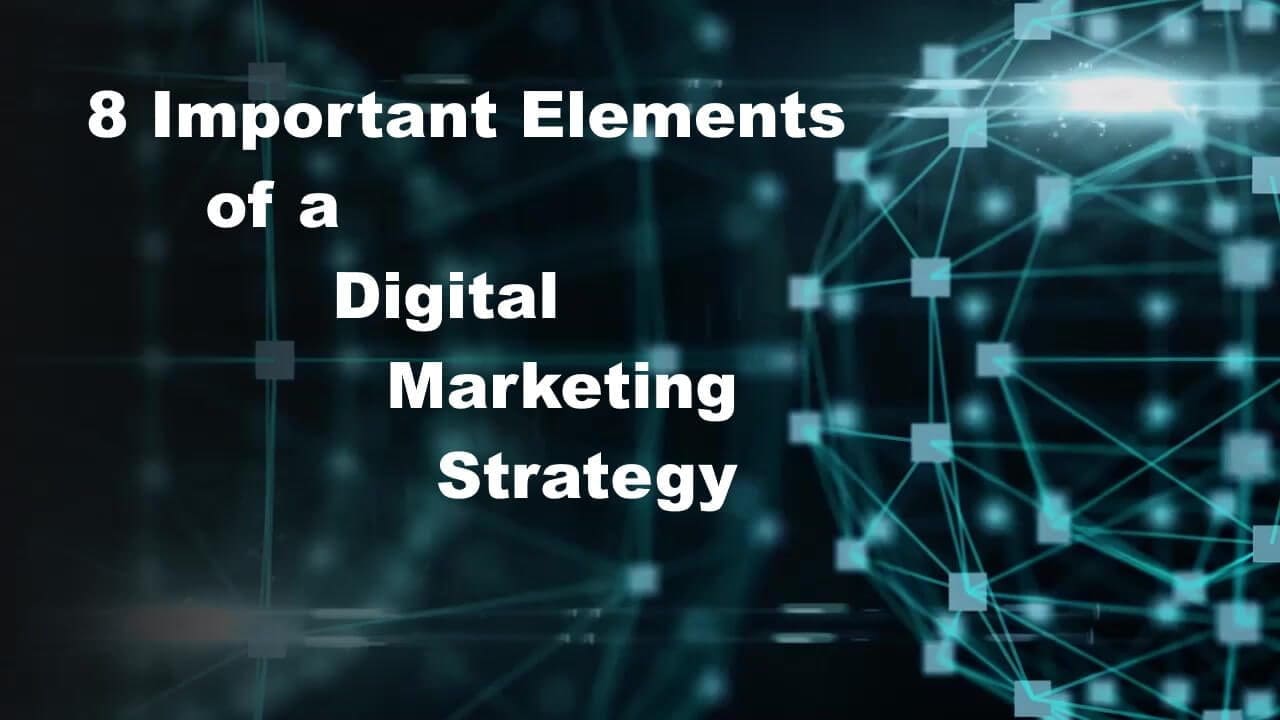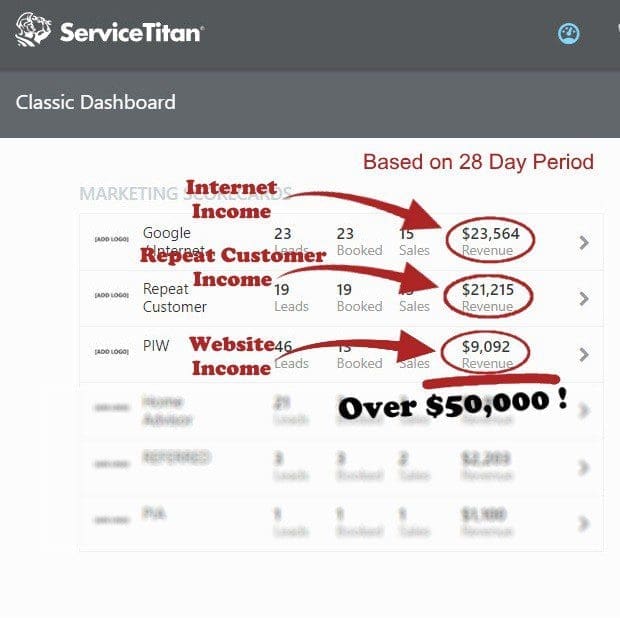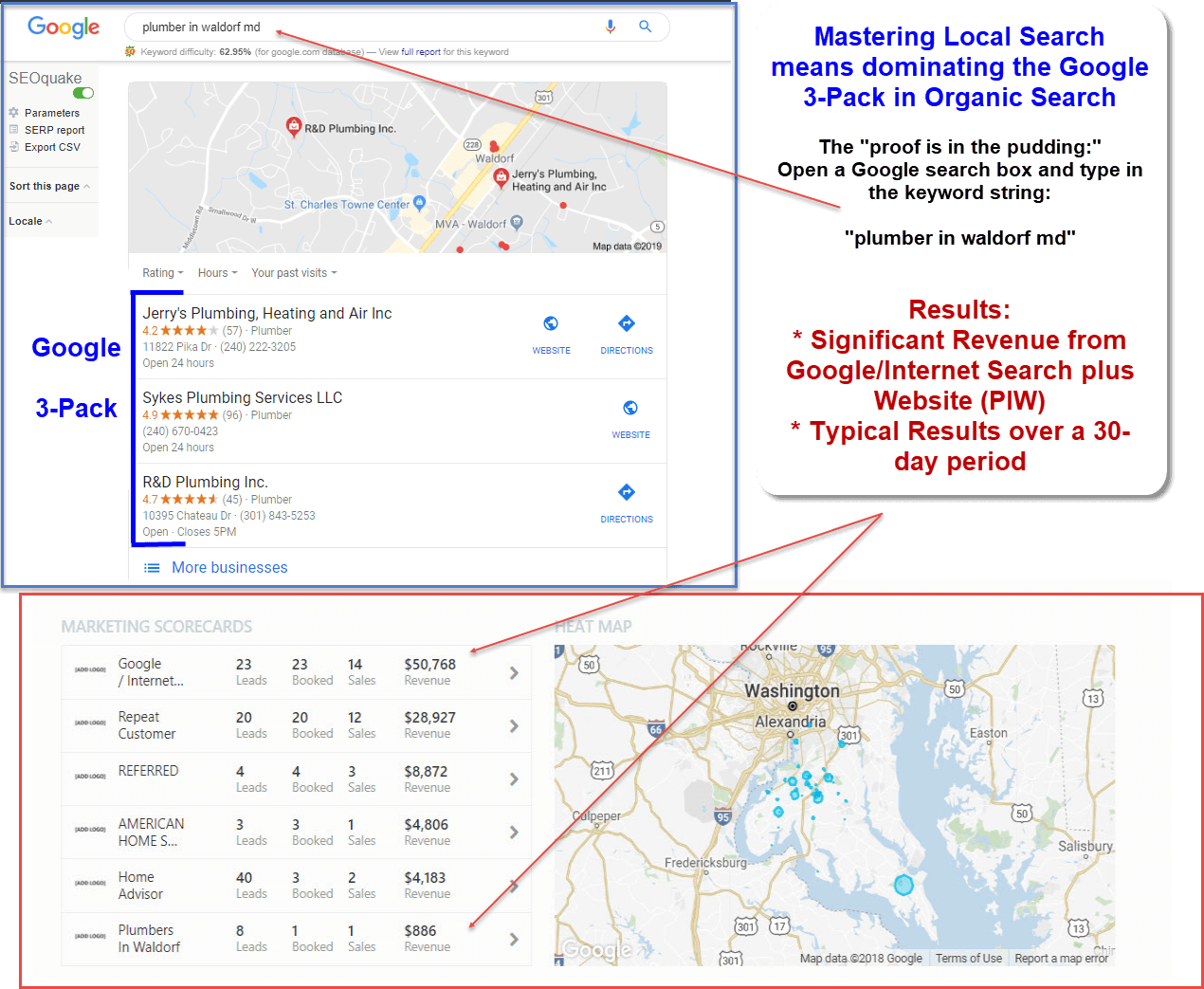A digital marketing strategy uses digital marketing tools and techniques to define how your business achieves its marketing objectives through online channels like search engines, websites, social media, and email. This marketing strategy fully embraces local search marketing!
Elements of a Digital Marketing Strategy
The eight most important elements of a solid digital marketing strategy consist of
- Having a mobile-ready website,
- A small business website with a blog or article section,
- A Google Business Profile (GBP) page,
- Social Media Marketing,
- Reputation Management,
- A strong presence in major directories and review sites,
- Consistent NAP (Name, Address & Phone number),
- Lead (customer/client/patient) nurturing.
All these elements combined make up a cohesive digital marketing strategy focusing on local search marketing.
For a small business to succeed in today’s modern world, it is essential to have a solid digital internet footprint. Therefore, a company must use a solid digital marketing strategy to define its plan. New client acquisitions, brand visibility, and impactful revenue-generating opportunities are at risk without a digital marketing strategy.
A Digital Marketing Strategy’s essential elements include a mobile-ready website, a blog, a Google Business Profile page, social media marketing, Reputation, Online Presence Management, Consistent NAP, and Lead Nurturing.
Get the Local Business Online Toolkit
Elements of a Strategy for Digital Marketing
In 2014, Forbes identified five essential elements of a digital campaign. In that article, a digital campaign’s five most important elements were mobile considerations, organic search, social media marketing, content marketing, and lead nurturing.
We highly recommend that you read that article when you have a chance. As you might imagine, the internet and digital marketing have evolved. Google has primarily driven that evolution.

Here are some great examples.
A Mobile Ready Website
Mobile considerations are now a requirement if you want Google to send organic traffic to your website. And that is something we want. In September 2020, Google switched to mobile-first indexing for all websites.
In other words, Google will only index a website if it is mobile-ready.
No more pinching and squeezing on your smartphone, folks. A mobile-ready website enhances the user’s experience, and Google is all about improving its user experience.
You Need a Blog Section
We added a “small business website with a blog or article section” and dropped “content marketing” from the Forbes article as part of our digital marketing strategy. We did not drop “content marketing.”
Content is king, and that will never change. We embellish how it is done in practice. It would be best to have a blog/article section to produce relevant content about your business and establish yourself as an expert in your field in Google’s eyes.
A Google Business Profile Page
We also added that you need a Google Business Profile (GBP) page for your digital marketing strategy. With a GBP account, you get more than a business listing. Your free Business Profile lets you easily connect with customers across Google Search and Maps.
If you have already claimed and verified your business, great! If you still need to, make sure you get this done. Once your business is claimed and verified, it needs to be optimized. You can post photos and offers to your profile to show what makes your business unique and give customers reasons to choose your company.
Please book a free online business consultation with us if you need professional assistance.
Reputation Management as a Digital Marketing Strategy
Furthermore, our marketing strategy includes reputation management and a strong presence in major directories and review sites with consistent NAP. Reputation management focuses on handling reviews on any number of review sites.
Whether you know it or like it, people talk about you online. It could be on Yelp or Facebook, or they can post reviews on Google. You cannot control people talking about your business, but you can control how you manage these reviews.
Google considers these review sites as your online customer service.
Consistent and Accurate Listings
A strong presence in major directories and review sites with consistent NAP is now significant to Google and other search engines. Consistent and accurate listings enhance the user experience.
Conversely, inconsistent and inaccurate listings only serve to confuse their users.
Get the Local Business Online Toolkit
What to Do Next
We understand that this might need to be clarified. Indeed, you probably need to figure out how you will manage your reputation, social media, and business listings while running your business. That is why we have made our Local Business Online Toolkit available. Our free toolkit will help you develop and manage your digital marketing strategy effectively.
This has all the tools a small business like yours needs to market its business online. These are apps; intelligent, intuitive apps that often interact with one another.
You will have access to all these free apps in your business dashboard. We’re here to help you get started and give you as much help as you need.
Please look at what is included in your Local Business Online Toolkit.
Today, you need more than a website to succeed in your local business. Online Marketing Management must also include:
- Online Presence Management (aka Business Listings Management) to build citations & boost SEO
- Reputation Management to monitor and manage your online reputation
- Social Media Marketing to engage your customers and
- Reviews Management to turn customer experiences into stars

 Call Sam @
Call Sam @









0 Comments